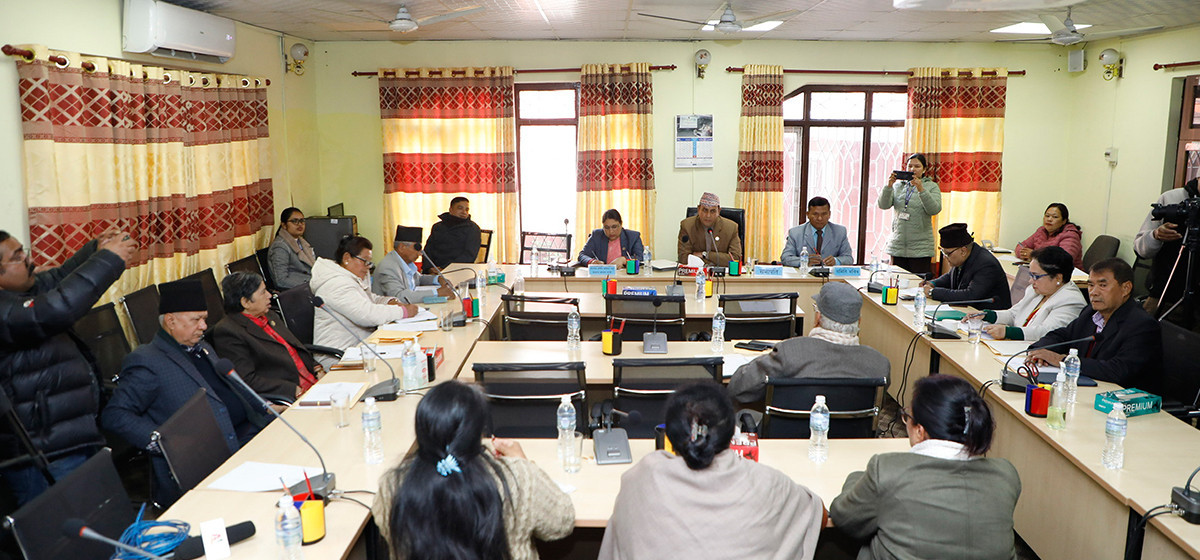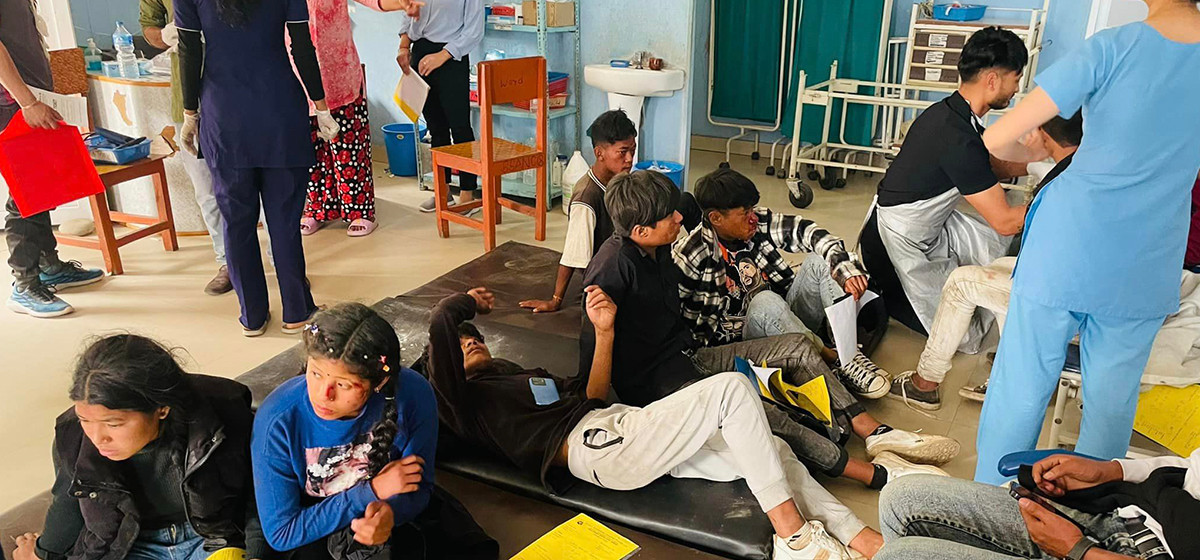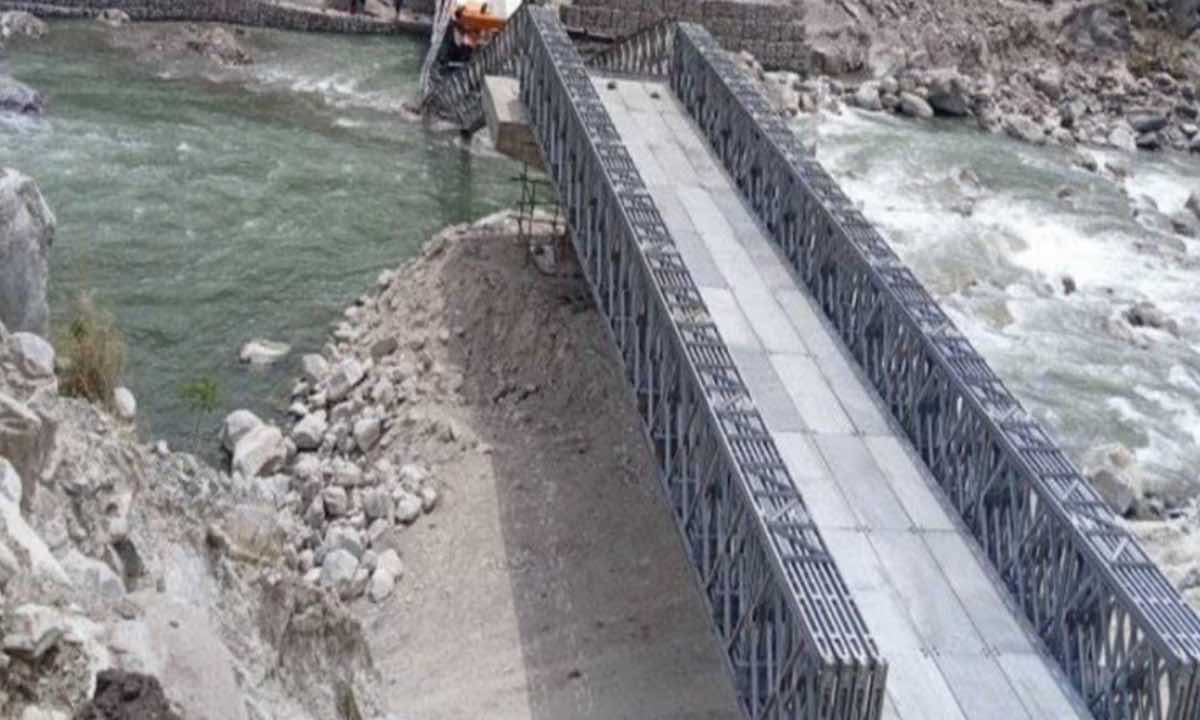
OR
Projects financed by Indian LoC
Nepali firms should be allowed to bid, say stakeholders
Published On: June 13, 2017 01:00 AM NPT By: Rudra Pangeni | @rudrapang
KATHMANDU, June 13: Professional bodies of contractors, consultants and engineers have said that the government itself should select contractors for roads projects being financed by utilizing Indian line of credit (LoC).
They have also said that Nepali construction materials should be allowed to use in such projects.
The government is utilizing Rs 35 billion of the Rs 100 billion third LoC announced by Indian Prime Minister Narendra Modi during his Nepal visit in 2014 to build one bridge and 16 roads. The detailed projects report (DPR) of all the projects has been prepared and the Indian government is selecting contractor for the project, as per the bilateral agreement to use the LoC.
Submitting a joint memorandum at the Ministry of Physical Infrastructure and Transport and Embassy of India in Kathmandu recently, Contractors' Association Nepal (FCAN), Society of Consulting Architectural and Engineering (SCAEF) and Nepal Engineers Association demanded that Nepali contractors be made eligible to develop the bridge and road projects. They have also said that contractors should be allowed to use Nepali construction materials in those projects.
Issuing a statement on Sunday, the three professional bodies argued that as LoC is a loan, the Nepal government should be allowed to select contractors on its own.
Ram Sharan Deuja, the general secretary of FCAN, said that Nepali contractors have been deprived of the opportunity to participate in bidding of these 17 projects“ "This case is even worse than the other projects like Hulaki Rajmarga and Rahughat Hydropower Project being built by using Indian LoC. Contract agreement for both the projects has been terminated no”," he said, adding that low bidding was one of the reasons behind contract termination.
Nepali contractors were allowed to participate in the bidding for these two projects by forming joint ventures with Indian companies. But only the ventures with 51 percent of shares held by Indian companies were eligible to participate in the bidding.
Though bilateral agreement to build these 17 projects has already been signed, the Department of Roads (DoR) has objected to the provision of barring Nepali contractors and selecting contractor from New Delhi.
Nepal is close to becoming self-reliant in cement and steel. But the bilateral agreement says construction materials worth 51 percent of the project cost have to be procured from India“ "On one hand Nepali companies won't get any economic benefit from the project, and on the other construction work might see delays as it will take more time for Indian construction materials to arriv”," added Deuja.
Differences between the two countries over selection of contractors have affected these key projects. Officials of the Department of Department of Roads (DoR) had refused the Indian proposal, arguing that it is impractical and that it will affect implementation of the projects.
Road Improvement Project (RIP), the implementing agency of those projects under Department of Road, had said that they denied the Indian proposal for allowing the southern neighbor to select contractors would be against the country's procurement laws.
You May Like This

Brokerage firms to be allowed to provide margin trading service
KATHMANDU, Oct 17: The Securities Board of Nepal (Sebon) is preparing to allow stock brokerage firms to provide margin trading service... Read More...

Brokerage firms to be allowed to provide margin trading service
KATHMANDU, Oct 18: The Securities Board of Nepal (Sebon) is preparing to allow stock brokerage firms to provide margin trading service... Read More...

Nepali Embassy in UAE holds talks to promote Nepali products
UNITED ARAB EMITRATES, Feb 24: Nepali Embassy in the United Arab Emirates (UAE) has held an interaction program in a... Read More...
Just In
- State Affairs and Good Governance Committee meeting today
- Gold items weighing over 1 kg found in Air India aircraft at TIA
- ACC Premier Cup semi-final: Nepal vs UAE
- Sindhupalchowk bus accident update: The dead identified, injured undergoing treatment
- Construction of bailey bridge over Bheri river along Bheri corridor reaches final stage
- Taylor Swift releases ‘The Tortured Poets Department’
- India starts voting in the world’s largest election as Modi seeks a third term as prime minister
- EC seeks cooperation for free and fair by-election



















Leave A Comment